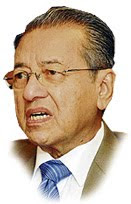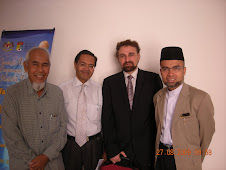Protection for the poor via microtakaful
BY Jeeva Arulapalam Published: 2008/07/15
PDF
EMAIL
PRINT
CURRENCY CONVERTER
LARGER TYPE
SMALLER TYPE
Three key challenges that prevent the expansion of microtakaful schemes to a wider community include lack of technical expertise, regulations and reinsurance
MICROTAKAFUL can help alleviate poverty among the Muslim population as it prevents individuals from falling back into poverty after experiencing losses and natural perils.
"It's basically designing a specific product to address a specific need bearing in mind the capacity of the policyholder," said UK-based International Cooperative and Mutual Insurance Federation (ICMIF) senior vice-president and chief financial officer Sabbir Patel.
ICMIF is a global organisation representing cooperatives and mutual insurers worldwide, comprising 200 members from 72 countries.
Patel said microtakaful provided protection for the lower income individuals, who contend with issues such as lack of product awareness and financial capability, product affordability and coverage.
"With microtakaful, products are made more affordable and easy to understand so that they (lower income individuals) have access to basic protection," he told Business Times recently.
In his ICMIF paper "Takaful and Poverty Alleviation", Patel said the lack of interest by the formal sector to serve the poor is due to low collateral, higher transaction costs, interest rate restrictions, uncertain profitability, high risks, and inability to serve the specific needs of the poor.
Thus, providing insurance coverage to the poor has fallen upon the informal sector such as microfinance institutes, non-governmental organisations, credit unions and cooperatives.
He said microtakaful could adopt a partner-agent model, in which the microtakaful provider may become an agent for an established insurance company to gain access to technical expertise.
This model allows for the pooling of risks between the formal and informal sectors.
Three key challenges that prevent the expansion of the microinsurance (or microtakaful) schemes to a wider community include lack of technical expertise, regulations and reinsurance.
According to the ICMIF, the first microtakaful scheme was established in 1997 by the Lebanon Agricultural Mutual Fund, which provides health insurance coverage for costs not covered by the government social security fund.
Subscribe to:
Post Comments (Atom)







































No comments:
Post a Comment